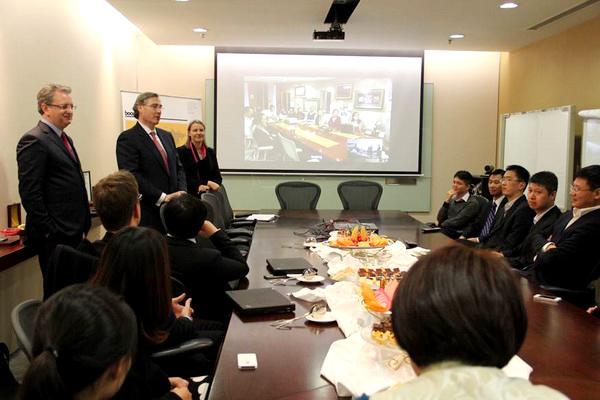Knowing what to cut and what to keep is key rule for companies
The second half of 2008 meant a lot to Cesare Mainardi, chief executive officer of Booz & Co.
In the summer, the management consultancy - then known as Booz Allen Hamilton - separated from its US government consulting business to launch in its present form. Major world economies were being hit by global financial disarray. It was then that Mainardi, then managing director of Booz's North American business, made his first trip to the Chinese mainland.
|
 Cesare Mainardi, chief executive officer of Booz & Co, and other top directors meet consultants in Shanghai in June 2012. [Photo / China Daily] |
That was the week, Mainardi recalled, when Lehman Brothers filed for bankruptcy.
Yet he didn't notice any differences when he landed in Shanghai, the country's most dynamic economic hub.
"China serves the world as an exporting giant. When you think of China's growth over time, it's going to be the world's largest consumption market for goods," he said.
According to a Forbes report in 2011, Booz ranks among the top five consulting firms worldwide, citing US-based career website Vault.com.
That's remarkable given the fact that one would be hard-pressed to find a worse time than 2008 to launch a global consulting business focused on commercial clients, many of whom did not survive the recession that began within a few short months.
But Mainardi believes the financial crisis had a silver lining - it forced companies to become more focused, disciplined and coherent in order to survive and, ultimately, win in their industries.
And Mainardi said research has proved that the surest way to achieve this coherence is by applying the approach he helped to pioneer, called the "Capabilities-Driven Strategy".
"Coherent companies have clearly defined what their distinctive capabilities are and only reach for opportunities that are supported by these capabilities. This provides a clear way for prioritizing or even challenging business unit requests based on how well they align with the strategy," he explained.
